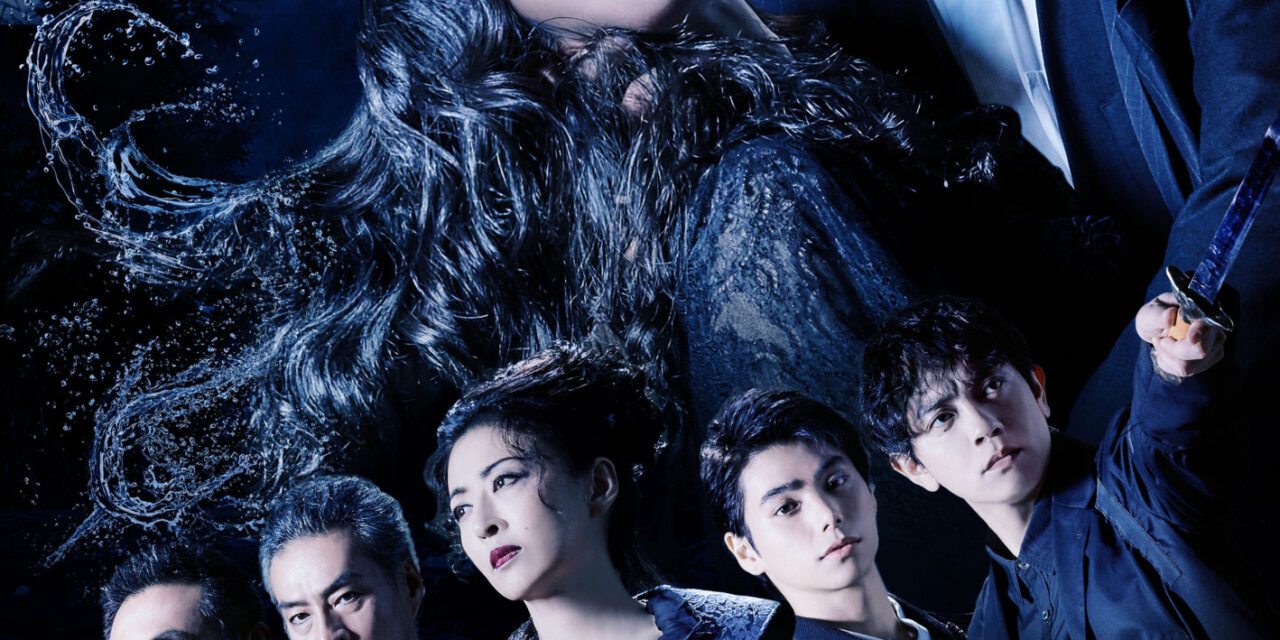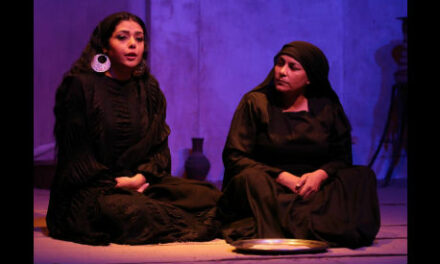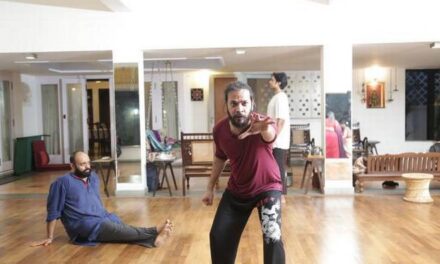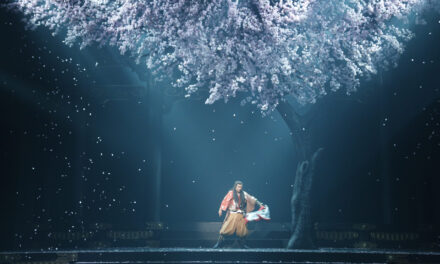With praise for his Hamlet with the Royal Shakespeare Company in 2016 still ringing in his ears — and the plum job of artistic director of the Shakespeare Theatre Company in Washington D.C. awaiting him in August — Simon Godwin is an undoubted darling of English theater these days.
So for Theatre Cocoon in Shibuya to land his services to re-stage the Bard’s most famous tragedy in a new production with a Japanese cast is certainly quite a coup.
Yet for Godwin — whose Hamlet, with the black British actor Paapa Essiedu leading a largely black cast, went on to wow American audiences last year — the worry must have been how to create another fresh version for Japan so soon after the last.
Asked about that challenge, Godwin, 41, does not appear fazed, saying, “I’ve just told the actors that we want to find a way of making the play feel like it was written yesterday.”
Speaking to The Japan Times, he expands on his modernizing approach to classic plays following his recent production of Antony and Cleopatra for the National Theatre in London, which featured an affair between a U.S. Army general and a Syrian princess in place of the original’s ill-fated Roman and Egyptian lovers.
“It’s not just about costumes, it’s about spirit and movement, how we look at each other, how we communicate and engage together,” he says. “Really, there is so much in common between now and Shakespeare’s time 400 years ago.
“In Hamlet, there are feelings of heartbreak, grief, and indecision, betrayal and confusion, which are all very contemporary things all over the world. So to be a human being is to share certain truths.”
Although Godwin may appear to have a radical way with staging Shakespeare, he stresses there’s no “Magic If” about simply switching the time-setting, as that could easily lose a work’s universality en route.
“It’s delicate,” he says. “You don’t want to make the play feel smaller by, for example, making Antony and Cleopatra about Brexit, or Hamlet about modern politics. The plays are more mysterious, or bigger, than now. They’re mythical and deep-rooted and stranger than today, yet they still speak to today.”
In the case of Hamlet, the play depicts the titular Prince of Denmark (played by Masaki Okada) who succumbs to paranoid delusions following the unexplained death of his beloved father and the immediate remarriage of his mother, Queen Gertrude (Yasuko Matsuyuki) to his uncle, Claudius (Kiichi Fukui). On top of that, the prince also loses his one true love, Ophelia (Haru Kuroki), her father and brother and his old friends. Then finally the whole country lies in ruins.
It’s certainly quite the tale, and one that inspired the former artistic director of Theatre Cocoon, the late Yukio Ninagawa, to create eight versions of Hamlet during his career. Godwin grins on hearing this, saying, “That’s great! Then I’m allowed to do it six more times. And actually, it’s also a tribute to the play that you can still find so much that’s different in it.”
Godwin says one of the main reasons he decided on Hamlet for his Japan debut was “because of this wonderful actor Masaki Okada. He wanted to play Hamlet, and I think it’s very important with these Shakespeare plays that you have the actors to play the parts first before taking the project any further.”
From the outset, Godwin says his task was to explore Okada’s own story — what he would bring to the part and what the story would become in his hands. In explaining this, he refers to Konstantin Stanislavski (1863-1938), insisting, like the Russian theater practitioner, on the importance of actors portraying their roles as part of their own experience.
“I asked Okada what would happen if his own father came back to him in a dream or vision and said, ‘I’ve actually been murdered.’ How would he respond?”
Interestingly, Godwin says directing a Japanese company in Japan has made him realize he needs to be humble working abroad, and how important it is to learn about other cultures.
“It’s very delicate because theater is tribal and there are many subtle things I grew up with in England without even realizing,” he says. “So I understand the British tribe, what they can cope with, or what makes them laugh.
“Here, though, I don’t understand much. I make what I think is a hilarious joke and there is just silence, or I think something is going to be super-obvious, but people have no idea what’s happening. However, that’s also very inspiring because I have to clear away stuff and find the very essential things that can speak to me and to audiences in Japan.”
In a seamless segue, the Cambridge graduate then offers a special tip for expressing Hamlet’s solitude, based on his own feelings in Japan.
“Something about Hamlet’s descent into a kind of disorientating reality of dream truths is for me like being in a foreign country. I use that feeling for time’s Hamlet, who is lost but seeking where he belongs,” he says.
For this production, Godwin discloses that the London-based stage designer Soutra Gilmour has prepared a revolving stage — though he cautions, “I never say too much about the set because it’s nice for audiences to have a surprise. Even so, this time the landscape is inspired by a kind of revolving labyrinth or maze in which characters are being hunted or chased through rooms.”
Using that device, Godwin says, allows the action to flow smoothly without lots of scene changes, while audiences can see several characters’ private moments or episodes at the same time.
In addition, just as he cast British actress Kathryn Hunter in the title role of his acclaimed Timon of Athens for the Royal Shakespeare Company last year, Godwin is tinkering with gender again in Hamlet, with the prince’s boyhood friend Guildenstern played by Yasuko Uchida and women as some of the soldiers.
As to why he took those decisions, Godwin says, “The world is finally working to recognize women in all its areas, and theater must play its part.
“It’s very important that these plays are not just about men, by men, and for men, but they are about everybody. In modern life, women can be soldiers, a friend of Hamlet or anything.”
Finally, asked about his ambitions and why he is set to leave England even with his star in the ascendant, Godwin says, “As human beings, I think it’s good to be out of your comfort zone, so you have to let go of things, habits, opinions, prejudices and all that.
“And at this time in the world — with people being nationalistic, and Brexit and the rise of the right in so many places — it’s very important that all of us, as cultural people, redouble our efforts to be open, to be ready to change: to change for the environment, to change working practices and to change things for women. Otherwise, the world will become smaller, harder and more dangerous.”
“Hamlet” runs from May 9 to June 2 at Bunkamura Theatre Cocoon in Shibuya, Tokyo; then from June 7 to 11 at Morinomiya Piloti Hall in Osaka. For details, visit www.bunkamura.co.jp.
This article originally appeared in TheJapanTimes on April 30, 2019, and has been reposted with permission.
This post was written by the author in their personal capacity.The opinions expressed in this article are the author’s own and do not reflect the view of The Theatre Times, their staff or collaborators.
This post was written by Nobuko Tanaka.
The views expressed here belong to the author and do not necessarily reflect our views and opinions.


















